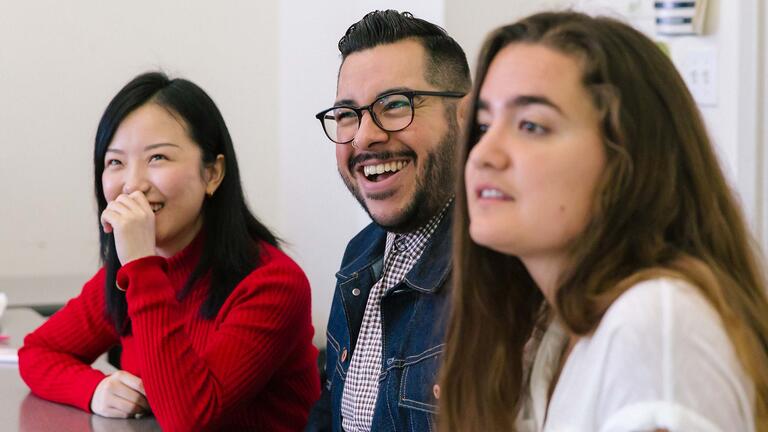
Clinical Training & Research
Clinical Training
Clinical training occurs through practicum and internship training off-campus in various clinical settings. Practicum training begins in year 2 and continues at a new site each year during years 2 through 4 of the program. The PsyD Program is a member of the Bay Area Practicum Information Collaborative (BAPIC), which is the mechanism through which students apply to and match at their practicum training sites. The program faculty and Director of Clinical Training are closely involved in supporting the student application and interview process for practicum placements.
During years 2, 3, and 4, students spend approximately 16 to 24 hours a week at their practicum site while concurrently attending classes two days a week on campus. Students have access to numerous practicum training sites in the Bay Area. While specific sites vary from year to year, sites may include major medical centers, community mental health agencies, university counseling centers, school-based programs, children's hospitals, and in-patient treatment programs. Students accrue at least 1,500 hours of practicum experience and are expected to have breadth and depth in their clinical training by the time they apply for their full-time clinical internship. Students develop skills in psychotherapy, psychological assessment (e.g., cognitive, personality, neuropsychological testing), and consultation with a variety of populations and communities.
The culminating clinical training capstone of the program is a 1-year full-time (or a 2-year part-time) clinical internship. Students apply for a clinical internship through a national process facilitated by the Association of Psychology Postdoctoral and Internship Centers (APPIC), which provides access to hundreds of training sites across the United States and Canada.
Research & Scholarship
Tenure-track and tenured PsyD program faculty actively conduct research and publish in the field of clinical psychology. Students are required to complete a Clinical Dissertation as part of the PsyD degree and begin this process in year 2 of the program while concurrently receiving coursework in statistics and research methods. Students have the opportunity to study a clinically relevant topic in depth using a variety of methods. Students are matched with a PsyD program faculty member who chairs their dissertation and provides guidance, feedback, and support throughout the process. Students can additionally seek out other research opportunities within and outside of the PsyD program based on their interests and availability of positions.
Please see the Clinical Dissertation Handbook for additional details and requirements.
Dissertation Presentations
The goal of the Clinical Dissertation is to ensure that the Candidate possesses advanced scholarly abilities consistent with the aims and competencies of the PsyD program. In addition to other requirements, successful completion of the Clinical Dissertation signifies the culmination of the program and leads to the PsyD degree. The specific objective set forth by the PsyD Faculty to accomplish this goal is for the Candidate to demonstrate this competence and scholarship in a written document and at the final oral defense of that document, as well as during the mentorship process in preparation for these final products.